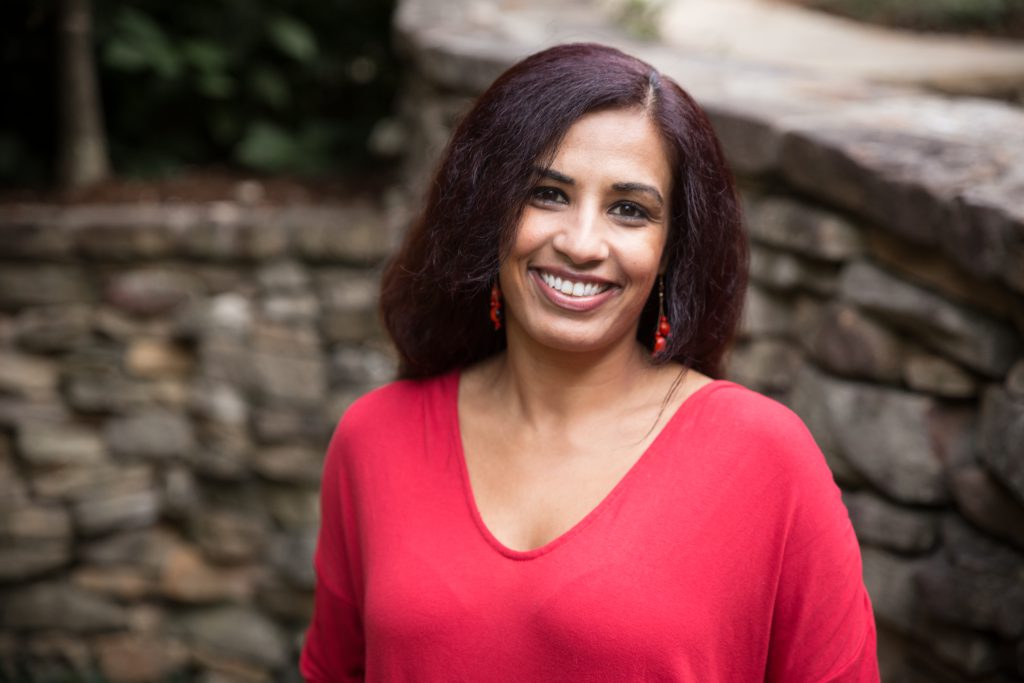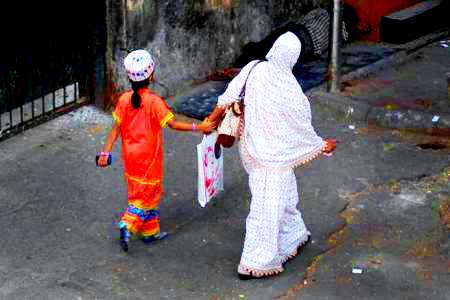Sahiyo address FGM/C education in webinar

On July 30th, Sahiyo teamed up with the Global Woman P.E.A.C.E. Foundation and The Council of the Great City Schools to host a webinar, Learning about Female Genital Mutilation/Cutting (FGM/C) in the Classroom: The importance of nationwide education as a tool for prevention. FGM/C affects over 200 million girls and women globally, with many more at risk of undergoing the harmful practice each year. FGM/C can cause lifelong physical, emotional, and psychological harm, yet the public is still lacking in understanding the global scope and severity of the issue. In fact, a multitude of misconceptions surround FGM/C. In this educational webinar, we debunked common misconceptions, and explored the use of nationwide classroom education as a tool for FGM/C prevention. We heard from advocates and organizations on why and how FGM/C should be taught in schools and the power of public policy to make this a reality. Speakers included Mariya Taher, co-founder and U.S. executive director of Sahiyo; Hunter Kessous, programs intern of Sahiyo; Angela Peabody, president and founder of the Global Woman P.E.A.C.E Foundation; Gabriela Uro, Council of the Great City Schools; and Richard Black, former Virginia senator. Find the full recording of the webinar on YouTube here. Kessous also wrote a blog on addressing FGM/C in the college classroom. Find the full powerpoint and transcript of the webinar here. [youtube url=”https://www.youtube.com/watch?v=Prk1-hYcmGo”]
Crave Foundation recognizes Sahiyo co-founder Mariya Taher as 2020 grantee

by Jenny Cordle The Crave Foundation for Women selected Sahiyo co-founder Mariya Taher as one of their inaugural recipients for an individual grant in recognition for her work to end female genital cutting (FGC) in Asian communities and beyond. In 2015, she co-founded Sahiyo – United Against Female Genital Cutting, an award-winning, transnational organization with the mission to empower Asian communities to end FGC. She is one of five 2020 grantees. The Crave Foundation acknowledges that “pleasure is a universal human right that can not be fully realized where there is injustice and violence against women.” The foundation recognizes individuals who are working in the gender-based violence areas of female genital cutting and sex trafficking. Their model is unique in that they provide no-strings-attached grants so that grantees can utilize the grants in the most appropriate way they see fit. “That is incredibly rare, and I’m brimming with ideas now on how to use these funds to further my work to both support survivors and prevent future generations of girls from undergoing FGC,” Taher said, who is a survivor of FGC. Taher’s work at Sahiyo focuses on storytelling programs and creating a critical mass of voices against FGC to “create a culture in which survivors can heal by connecting” to work toward creating a society where FGC no longer occurs. “I’m constantly learning and adapting my work and Sahiyo programs to fit the needs of both survivors and the communities they belong to in which FGC occurs,” Taher said. “For myself, from the very beginning, I started engaging in anti-gender-based violence work because I had both lived experiences with gender-based violence, and also knew so many other individuals who also had experiences of some form of gender-based violence, whether it was female genital cutting, domestic violence, or sexual assault. I understood how both culture, society, and even one’s family could play a part in perpetuating environments in which violence occurred, and I wanted to learn how to undo that violence.” In addition to her work at Sahiyo, Taher collaborates with the Massachusetts Women’s Bar Association on passing state legislation to criminalize FGC; an endeavor in which FGC activists and lawmakers had two victories when the Massachusetts House of Representatives and the Senate recently passed bill H.4606 – An Act Relative to the Penalties for the Crime of Female Genital Mutilation. The bill is now on Governor Charlie Baker’s desk to be signed into law. Taher also creates community education and outreach programs within the state on this issue. Taher serves on the steering committee for the U.S. End FGM/C Network. In 2018, Taher received the Human Rights Storytellers Award from the Muslim American Leadership Alliance. The Manhattan Young Democrats honored her as a 2017 Engendering Progress honoree, and ABC News did a special feature on her, entitled: Underground: American Woman Who Underwent Female Genital Mutilation Comes Forward to Help Others. Taher has worked in the gender-based violence field for over a decade in the areas of teaching, research, policy, program development, and direct service. She has worked at Saheli, Support and Friendship for South Asian Women & Families, W.O.M.A.N., Inc., Asian Women’s Shelter, San Francisco Department on the Status of Women, San Francisco State University, and was a 2014 Women’s Policy Institute Fellow through the Women’s Foundation of California. During her journey as an advocate, she has learned that change takes time. “We all want change to happen quickly – particularly on issues in which violence is connected to children – but being an advocate teaches you that change is slow,” Taher said. “It doesn’t mean you won’t feel frustrated, and that there won’t be days when you want to just give up. Change will come. Every time I hear a survivor share her story out loud or learn someone has forgone having the practice done on their daughter – even each time that I learn an individual is joining this line of work because they want to make a difference, shows me that change is occurring and people care. All those examples give me hope, and it’s why I keep at this work.” Sahiyo co-founders include Aarefa Johari, Priya Goswami, and Insia Dariwala.
Protecting the girl child: The need for an anti-FGM law in India

By Anjali Shah “Girls are not property. They have the right to determine their destiny.” – Anthony Lake, Former Executive Director, UNICEF Religious dogmas have gained focus with women coming forward to challenge the subversion and repression that they have been subjected to for decades. This has brought into the limelight the practice of female genital mutilation (FGM), which thrives in the shadows of our society with little recognition. It is the fear of social exclusion that has prevented women from lifting the veil of secrecy, resulting in more girls being victimized. Some women of the Bohra Muslim community, where FGM is widely practiced, have justified FGM to be their religious and cultural right. However, a practice that demands such standards of purity from girls and women so as to remove a part of their body to curb their sexuality raises important questions pertaining to their right to live with dignity, equality, bodily integrity, and also their right to freedom from inhumane treatment. It may be argued that FGM can be practised under Article 25 of the Constitution of India that guarantees the right to religious freedom. However, this is not an unfettered right but is subject to the constitutional restraints of public order, health and morality. The content of morality is founded on the four precepts emerging from the preamble, i.e., justice, liberty, equality and fraternity, which assures dignity for human life. The test of constitutional morality is to bow to these norms. FGM is a practise that reduces a girl child to chattel. It makes her right to live with dignity conditional upon actions beyond her control. Moreover, it is a practise which can cause life-long impairment, including difficulties with urination, kidney damage, infertility and psychological problems. Thus, taking into account the consequences of FGM on the life and well-being of a girl, FGM may not justify itself to be a practice validated on the basis of any religious tenet. While some people categorise FGM as discrimination against women, it is often the women of the community who are the perpetrators of this practice. It thus boils down to FGM being a facet of religion governed by individual belief. Autonomy is the premise for religious freedom and only stands legitimised when applied to one’s own choice to undergo FGM. It cannot be used as a blanket protection to permit actions, which can be categorised as a crime causing grievous hurt under the criminal statutes of the country. The Supreme Court of India has observed that depriving freedom to choose on the basis of faith is impermissible. Given that FGM is largely carried out on girls, who have little or no knowledge of the atrocity they are being subjected to, this results in an implicit denial or deprivation of the freedom to make a choice to undergo cutting. This appears to be in direct violation of Article 21 of the Constitution of India. The focus on elimination of FGM by international organizations has driven several countries to enforce laws against FGM. Sadly, in India, neither the political leaders nor the judiciary is playing its part to ban FGM. The Public Interest Litigation filed in 2017 before the Supreme Court of India to enact an anti-FGM law is still pending after being referred to a larger bench. Additionally, the Minister for Women and Child Development in 2017, who once sought a ban on FGM, later released a statement to say that there is no data in existence of FGM in India. From the surveys conducted on FGM in India, it is apparent that girls and women are willing to raise their voices against FGM, but are prevented many times from doing so due to the fear of expulsion from the community. To ensure effective support, a specific anti-FGM legislation is of utmost significance. Such a law may play an important role to instill fear in the minds of the people who allow FGM or are indifferent towards it. It may serve as a tool for community members to combat societal pressure in regard to FGM. An anti-FGM law may reinforce confidence among the girls and women to report cases of FGM. It may also help to put in place a mechanism for mandatory reporting of cases and also adequate protection measures. A strong political will is the key to end the practice of FGM in India. It is only when the political leaders are sensitised about the consequences of FGM to women and girls, that there may be a positive change towards enacting an anti-FGM legislation. The next key element will be the capacity building of lawyers, judges, police personnel, and social workers, who will be the driving force to identify and prevent cases of FGM in the country by systematic enforcement of laws and policies. However, one needs to be mindful that while a law may serve as adeterrent, the perpetrators are almost always mothers, grandmothers and other family members. Thus, the fight towards abolition of FGM requires a sensitised and a holistic approach. This includes awareness programmes that stress on the issue of FGM, framing comprehensive policies and guidelines and also education about the consequences of FGM to overcome religious barriers and give importance to human life. Finally, societal change also requires a strong opposition from the men in their roles as fathers, community leaders and husbands who many times in the past have had a passive role in encouraging FGM. If they were to make the decision to abandon the practice, it would have widespread impact and help shift the mindset around FGM, thus aid to abolish the practice. There is a need for a change in the way people think and perceive others and their rights. This change will allow breaking the barriers of the age-old customs and traditions that allow subjugation of women, and will aid in protecting the girl child.
